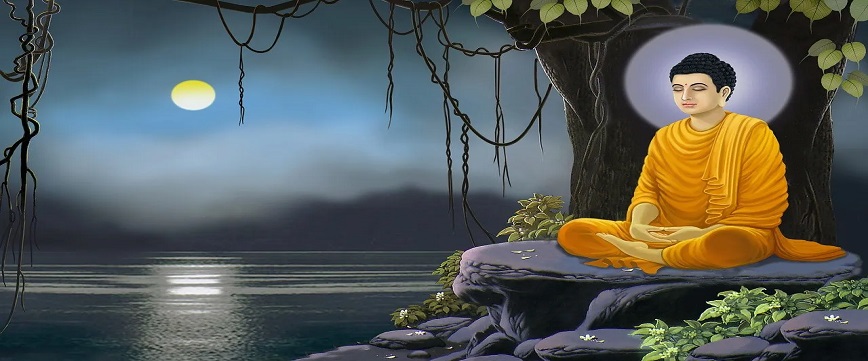
Buddhists are referred to as Buddhists because Gautama Buddha, also known as Siddhartha Gautama and Lord Buddha, is regarded as the founder of Buddhism. In addition to being referred to as Buddha, Gautama Buddha is also referred to as an enlightened one who has achieved freedom from suffering and ignorance.
In a kingdom located just below the Himalayas on the eastern edge of the Indian subcontinent, Gautama Buddha was born into the Shakya Clan. His father was the head of the clan, and his mother was a Koliyan princess.
Gautama Buddha was born in the province of Lumbini, Nepal in 623 BC. Coming from a noble family of the Shakya Clan, who resided in the Himalayan foothills, his father Suddhodana was the head of the clan while his mother Maya was a Koliyan princess.
Reportedly, court astrologers prophesied that he would become a great sage or Buddha. Since then, Buddha's father shielded him from any knowledge of human suffering or the outside world and provided Gautama with every luxury imaginable. Although living an extravagant lifestyle for 29 years in Kapilavastu, one day while out in its streets he encountered an old man, a sick man, and even encountered a corpse thus requiring his charioteer to explain to him that all beings are susceptible to aging and death.
Distraught by this information, he could not rest until it occurred to him that maybe through embracing asceticism he may be able to answer life's questions about suffering and find comfort; hence decided to leave his kingdom behind - searching for solace.
In pursuit of answers to the questions of suffering, Buddha left without waking his wife, garbed in a monk's simple robe. He studied with two teachers: Alara Kalama and Udraka Ramaputra. From Alara Kalama, he gained knowledge on how to direct his mind into the realm of nothingness, and from Udraka Ramaputra, he was schooled on ways to focus within the state between consciousness and unconsciousness. Ultimately, Buddha departed from both of his mentors and pursued freedom.
With five companions, Buddha practiced asceticism for six years, eating single grains of rice and conflicting his mind against his body. After Buddha abandoned asceticism, his companions left him.
During his meditation, Buddha was offered a disk of milk and a few vessels of honey by a woman named Sujata a village. After this, he bathed in the Nairanjana river and sat beneath the bodhi tree. After seven days, he was freed from human suffering and became Buddha, the enlightened one.
Buddha, upon his enlightenment, thought it would be too hard for people to comprehend and thus hesitated to talk about it. It is said that God Brahma encouraged him to reconsider this view, and he went back in search of Alara Kalama and Udraka Ramaputra. Unfortunately, they had passed away by then.
Consequently, yet determinedly, Buddha moved on to find his five friends who had left him before. He met them at Deer Park near Varanasi and was successful in convincing them about his awakening. This was the first time that he showed the Dharma Wheel publicly. Subsequently, these individuals became a part of the First Sangha, a congregation of male (and later female) followers who followed the precepts of Buddha while traveling around northeastern India in small groups where they taught dharma and practiced meditation while also obtaining their meals from begging.
In India, Buddha preached dharma for 49 years in villages and towns. The sangha developed a set of decrees to govern the sangha, preserved in various texts called Pratimoksha. Many kings knew him, so they donated gardens and parks for retreats. Sangha recited these texts every two weeks.
Buddha died at the age of 80. He asked the monks gathered around him to take refuge in themselves and the dharma on his deathbed because everything is transient. He was given the title Lord Buddha centuries after he died.
The Buddha, born into an aristocratic family with all the luxuries, decided to leave everything behind to solve the human suffering problem. The sangha helped him spread his teachings after he attained enlightenment under the Bodhi tree. He became the founder of Buddhism. While the year of Buddha’s death is still unknown, his life and teachings remain relevant to us today.
Check out all the best biographies of all time click here to find the most credible information about Albert Einstein History, Theories, Facts, Inventions, Education & Vivek Ramaswamy Education, Net Worth, Family, House.